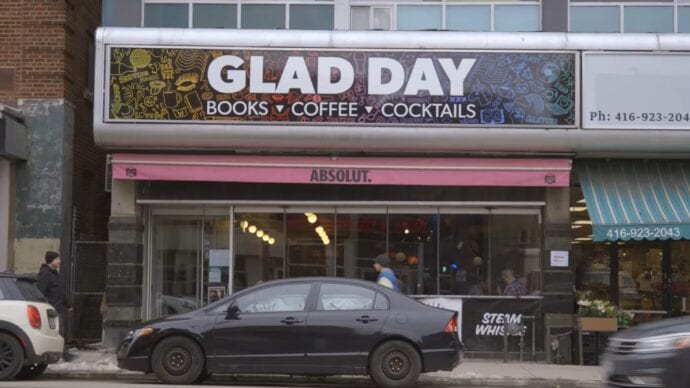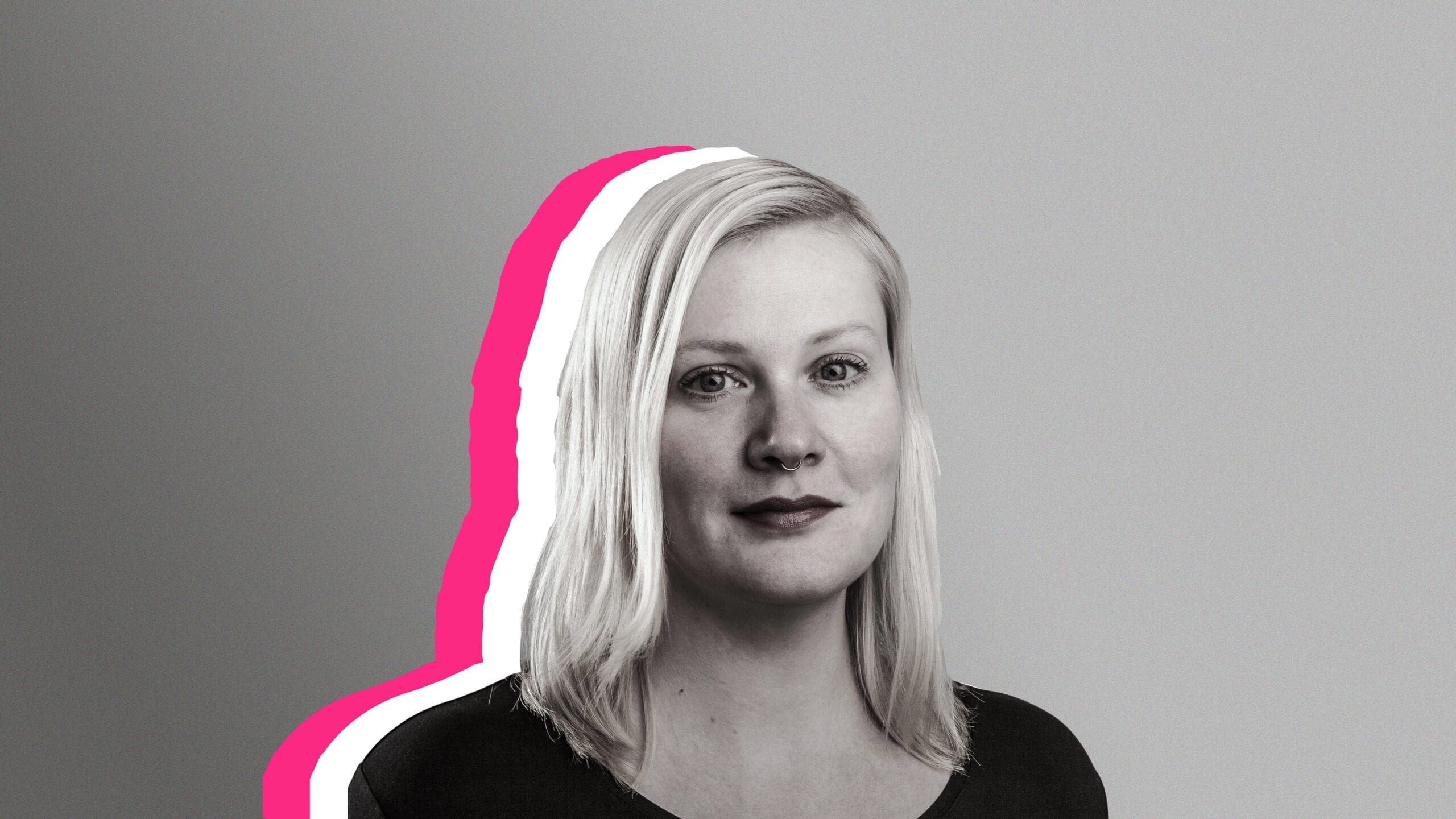Mar. 18, 2020
We Berlin
Six months ago, writer and filmmaker Beatrice Behn and two other artists decided to set up Karada House, a queer collaborative art space in Berlin. But when confronted with the unspooling disaster of COVID-19, the trio transformed it into a support and service hub called Queer and Womxn Relief for COVID-19. As of Mar. 18, they were coordinating about 900 volunteer helpers to deliver much-needed goods, food and medicine to isolated and quarantined queer and trans folk.
“We basically fell into this,” Behn says. “Because last week, when the virus here started hitting really bad, we already saw that people were having a hard time. We had definitely hit a point with queer people becoming anxious and scared. We realized that we needed to start an initiative right away before things get too bad.”
Even in a progressive cultural capital like Berlin, LGBTQ people often find that their unique needs aren’t always met by mainstream institutions. “There’s a lot of solidarity and neighbourhood initiatives in Berlin,” Behn says. “But they don’t really include queer people so much. Not everybody feels comfortable or safe to ask their neighbours for help. If you’re trans or visibly queer you might be endangered. There’s a lot of discrimination here toward people of colour and others.”
The first priority was rounding up volunteers. The group used a set of Google forms to coordinate the drive; they had copied them from another grassroots support group called Queer Care UK. “We just threw those forms out there,” Behn says, “and they got shared a lot. It was amazing.” (The forms are free to copy.)
Karada House tries to match two helpers to every person in need. The volunteers handle pickups and deliveries; sometimes they just offer a friendly ear for those who need to talk.
“We have a lot of people who need just somebody to talk to because they can’t go to their queer spaces anymore,” Behn says. “They are socially isolated which has a huge toll on their mental health.”
Access to medicines is emerging as a critical need. “If you are part of the German health system and have health insurance, you’re fine,” Behn says. “But if you’re not— and there are quite a lot of people who are not—you are in big trouble right now.” So Behn’s group is trying to coordinate drug pools.“We have started asking people if they have T [testosterone] or special HIV medication that others are running out of, to start to pool [what they have].
“If people have money or if they have a prescription, we can get this for them,” Behn says. “Everything else… basically, we’re back to trade and bartering. It’s like medieval times.”
Now Behn’s group is focussing on financial assistance, with a fundraising drive and a system to distribute 100 percent of funds.
“A lot of queer people in Berlin live and work in very precarious situations. [So many have] lost their jobs. A lot of people are falling through the German social system. We are already having a crisis in the queer community. People can’t even buy food anymore. And we’re only starting with the virus.”
In addition to providing frontline support, Karada House has taken on a coaching role, working with teams trying to replicate their work in Amsterdam, Oslo, Cologne and elsewhere. Behn is hoping to have a guide to best practices on their website early next week. “Until then,” they say, “people can just write to us on any kind of social media platform or at relief@karada-house.de. I’ll just get in contact with them and teach them.”
—Gordon Bowness
Glad Day Bookshop gives back

Credit: Courtesy Xtra Video
Like other brick-and-mortar bookstores, Glad Day Bookshop’s existence has been necessary but precarious. Nestled in Toronto’s Queer Village, it’s the oldest LGBTQ2 bookstore in the world, run by a collective who moved and transformed the shop in 2016 to include a restaurant, bar and event space to help keep it afloat. Since then, it’s become even more of a haven for queer and trans Torontonians, a natural home for communities to congregate. Pass by Glad Day on any given night, and you’re bound to be surrounded by artists, from drag performers to poets reading their newest works to DJs sampling new queer musicians—that was until this week.
Those artists—and Glad Day itself—are now in a squeeze, after the shop shut its doors Mar. 16 for the foreseeable future. And among those most deeply affected are our communities’ most vulnerable—artists who can’t pay their rent or buy food and tip-based workers left without incomes.
No stranger to such precarity, Glad Day has since stepped up. In the ensuing days, the bookshop’s charitable arm, Glad Day Lit, launched an Emergency Survival Fund—an opportunity to keep both the store alive during its shutdown and fund queer and trans artists most in need. Thirty percent of donations will support the bookshop and charity, and the remainder will be divvied up among LGBTQ2 artists. The immediate goal: $100,000 to keep Glad Day operating for a month, and financial support for up to 150 artists.
“The minute that spaces lost audiences and started cancelling bookings, we knew things were going to get worse,” Glad Day’s Michael Erickson says. “We know that a lot of people who come to or perform at Glad Day rely heavily on tips and bookings for their incomes.”
Since its launch, the fund has amassed more than $50,000 in donations, for more than 600 artists in need. But even greater financial aid is still desperately needed: More than $230,000 is required to help those who applied in the past 22 hours pay their rent.
For now, Glad Day has decided to provide small amounts to those with the greatest financial needs. Erickson says the fund will continue “until the dire need for those in crisis ends.”
“A lot of people do want to help and don’t always know how,” Erickson says. “A fund like this gives people a way to know they’re making a direct impact in a short time frame.” It’s all part of the integral effort being made to uplift our vulnerable communities. Because if Glad Day’s history is any proof, we do best when we come together in times of uncertainty.
—Erica Lenti
Pop star offers company during self-isolation
Queer icon Charli XCX released the schedule of her self-isolation Instagram live program on Mar. 18. The pop star announced she’ll be having daily online events to provide support to those currently self-isolating. In the next couple of days, Charli will be joined by various guests such as Christine and the Queens, Diplo, Rita Ora, Kim Petras and Clairo. The program varies from sharing insights about self-isolation, conversations with fans and personal training.
The English singer-songwriter is best known for uplifting, supporting and collaborating with queer and trans artists such as Petras, Clairo and Troye Sivan. In October, Charli was filmed fangirling during a gay couple’s proposal. The following month, during a concert in Russia, Charli was filmed saying, “I love the LGBTQ+ community so much because they f**king keep my career alive.”
According to a release, Charli says she’s using her platform to connect the online world and the real world through the shared experience spreading positivity.
“We’re all in this together, so self-isolation doesn’t have to be isolating,” she says.
In the meantime, here’s “Boys” by Charli XCX because why not
— Arvin Joaquin
 This story is part of Your Communities In Action, a continuing series on LGBTQ2 folks coping and caring for each other during the COVID-19 crisis.
This story is part of Your Communities In Action, a continuing series on LGBTQ2 folks coping and caring for each other during the COVID-19 crisis.




 Why you can trust Xtra
Why you can trust Xtra


